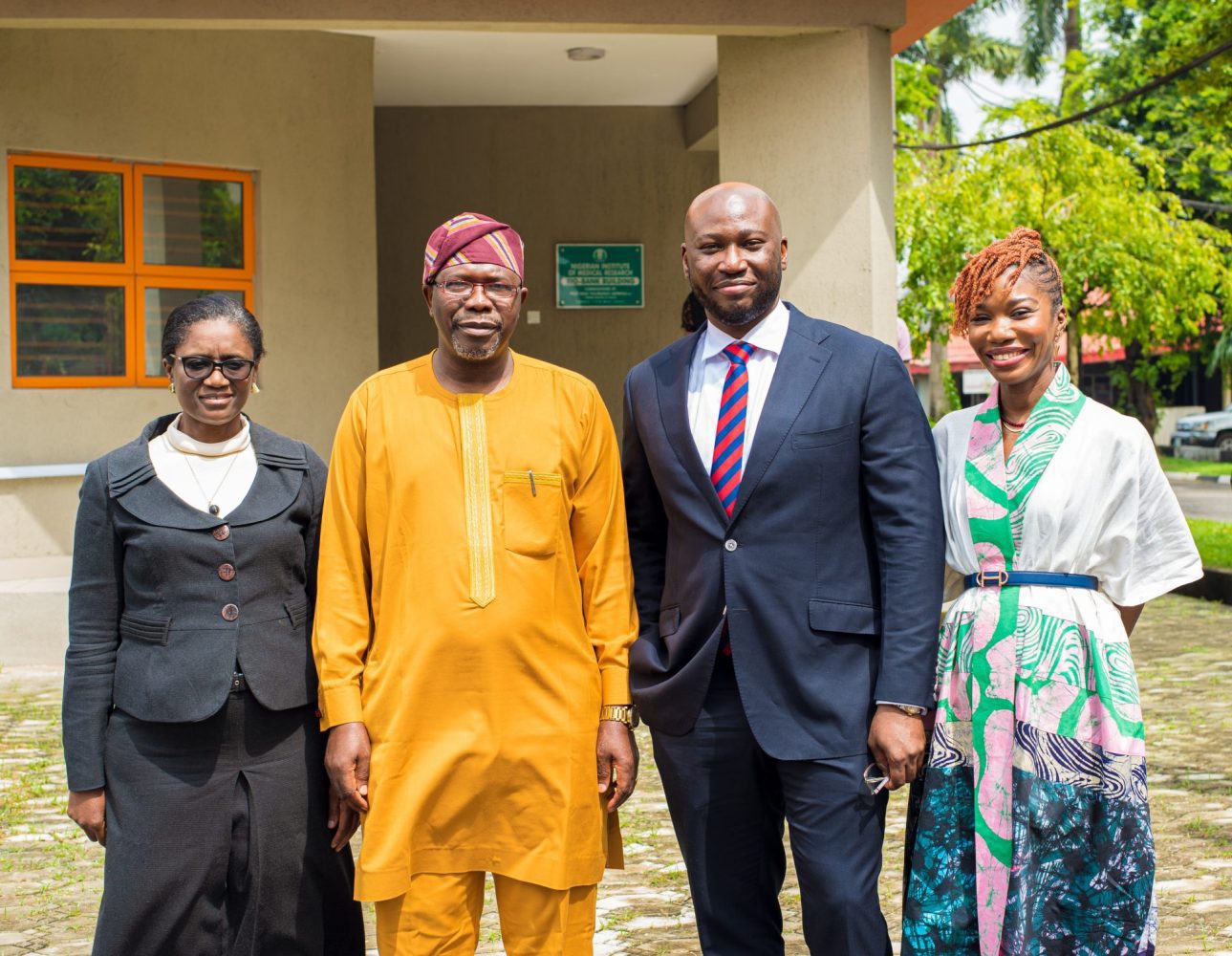Syndicate Bio Scores Early Win As 54gene Ex-CEO Plots Comeback

It first became public a month ago that Dr Abasi Ene-Obong, the entrepreneur who co-founded and led the now-defunct African genomics startup 54gene until his somewhat controversial exit, had moved on to other conquests. His new venture, Syndicate Bio, introduced itself as a platform biotech driving genomics and precision medicine initiatives across the world’s most genetically diverse regions.
Today, Syndicate Bio has announced the signing of a pivotal Memorandum of Understanding (MoU) with Nigeria’s leading governmental research institution, the Nigerian Institute of Medical Research (NIMR). This partnership sets the stage for genomic studies in infectious and non-infectious diseases, aiming to deepen understanding of the diseases prevalent in Nigeria, Africa’s most populous nation while identifying targets for drug discovery.
Launched in 2023 by Dr Ene-Obong, alongside co-founders Dr Jumi Popoola and Estelle Dogbo, Syndicate Bio is looking to establish itself as a critical player in the field of genomics research. Following its recent launch, the company aims to forge large-scale partnerships with governments, pharmaceutical giants, research and academic institutions and other stakeholders.
Using genomic technologies, these partnerships will drive change in the local healthcare landscape through precision medicine while simultaneously generating datasets crucial for advancing drug discovery and development efforts. In line with its commitment to advancing healthcare through innovation, Syndicate Bio will leverage NIMR’s infectious and non-infectious disease capabilities, which include laboratories and patient clinics, both at NIMR’s premises and across their partner networks.
Speaking on the collaboration, Abasi Ene-Obong, said, “After several months operating in stealth mode, today marks a pivotal moment for Syndicate Bio. Our signed MoU with the Nigerian Institute of Medical Research enables us to shift from stealth to actionable impact, empowering inclusive advancements in African genomics. This partnership not only validates Syndicate Bio’s strategy of forming ethical and transformative alliances but also lays the groundwork for a future where precision medicine is accessible to everyone, everywhere.”
Previously, Dr Ene-Obong along with co-founders Ogochukwu Osifo, Damilola Oni, and Gatumi Aliyu, launched 54gene in Nigeria in 2019 to address the neglect of African natives in global genomics research, setting out to build the authoritative biobank of the African genome.
Upon closing a USD 25 M Series B for 54gene in September 2021, Dr Ene-Obong, said the new capital will advance plans for “an African global drug discovery company that leverages the deep insights found in genomics research in diverse populations and ensures true equity for the African population.”
At its peak, 54gene’s biobank, described as state-of-the-art in some quarters, reportedly amassed over 200,000 unique human samples and corresponding genomic data. But despite going on to raise USD 45 M, the startup would eventually run into problems that culminated in its shuttering in July, almost a year after Dr Ene-Obong resigned from his CEO role and left the company.
“Nearly a year ago, I resigned from a company I founded and loved dearly. I chose not to fan the flames of speculation and quietly retreated to refocus on the bigger picture,” he wrote in a LinkedIn post announcing Syndicate Bio last month.
The new collaboration landed by Syndicate Bio marks a rarity in Africa, where a private and a government-run public institution collaborates for drug discovery. NIMR, established by an Act of Parliament in 1977, has spearheaded many studies as well as secured different levels of local and international grants, establishing itself among leaders of medical research in Nigeria. NIMR’s role extends to developing viable structures for disseminating research findings and providing an enabling environment for health research and training in cooperation with federal and state ministries, universities, as well as national and international partners, such as Syndicate Bio.
In a move that promotes ethical and national interest, NIMR will provide robust ethical oversight through its internal ethics body and the National Health Research Ethics Committee (NHREC) in managing the data and samples generated by the research projects.
“The NIMR’s partnership with the newly launched Syndicate Bio is a testament to what can be achieved when public research institutions and private innovation collaborate,” Professor Babatunde Lawal Salako, Director General and CEO of the Nigerian Institute of Medical Research, said. “NIMR hopes to bring its rich, robust experience in genomics and infrastructure to bear on the successful implementation of this much-needed collaborative effort. Together, we will harness the genetic diversity prevalent in Nigeria, and translate them into pioneering healthcare solutions tailored for both the local populace and the global community.”
Dr Ene-Obong added, “Our strategic alliance with NIMR not only sets a new bar for public-private collaboration in drug discovery, it also serves as an urgent summons to invest in Nigeria’s next generation of scientists. Together with NIMR, we will establish a training program for young scientists in Nigeria, aimed at providing theoretical and practical knowledge of molecular biology, genetics and genomic techniques, thereby equipping them to drive Africa’s scientific narrative.”
Seeking to go beyond research, Syndicate Bio and NIMR are taking steps to shape Africa’s scientific future. With this partnership, both organisations will launch targeted capacity-building initiatives focused on nurturing emerging scientists in Nigeria in order to equip them with advanced skills in genomics and molecular science. In doing so, the partnership is priming the next generation of scientists for success in a globally competitive field.